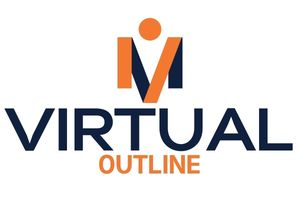Boost Your Credibility and Influence Through Effective Presentations
In today’s Presentation (到會推介) landscape, the ability to present ideas clearly and persuasively is an invaluable skill. Effective presentations not only convey critical information but also help establish credibility and enhance influence. Whether delivering a proposal to clients, presenting a report to management, or sharing insights with colleagues, mastering the art of presentation can significantly impact your career and professional reputation.
Establishing Credibility Through Clear Communication
Credibility is built on trust, and trust is established through clear, concise, and well-organized communication. When preparing a presentation, it’s crucial to ensure that your message is coherent and easy to follow. A well-structured presentation demonstrates professionalism and attention to detail, which immediately strengthens your credibility in the eyes of the audience.
One of the first steps in building credibility is ensuring that you are well-prepared. Thorough research and a solid understanding of the subject matter will allow you to speak with authority. When you are knowledgeable and confident in your material, your audience is more likely to perceive you as an expert, which boosts your credibility.
Additionally, supporting your claims with reliable data and evidence further enhances your credibility. Statistics, case studies, and real-world examples not only make your presentation more compelling but also show that you have thoroughly researched the topic and are well-equipped to discuss it.
Engaging the Audience for Greater Influence
While credibility is critical, the ability to influence others is often the ultimate goal of a presentation. Whether you are trying to gain buy-in for a new project or persuade your team to adopt a new strategy, an engaging presentation can make all the difference.
To maximize influence, it’s essential to connect with your audience. One of the most effective ways to do this is by understanding their needs, interests, and concerns. Tailor your presentation to address these points, ensuring that your message resonates with them. By showing empathy and understanding, you can foster a connection that makes your audience more receptive to your ideas.
In addition, effective use of storytelling can significantly increase your influence. People are naturally drawn to stories, and incorporating relevant anecdotes or real-life examples can help humanize your message. Stories can evoke emotions, making your presentation more memorable and persuasive.
Visual Aids and Body Language
The way you present yourself and the visual aids you use can also impact your credibility and influence. Your body language should reflect confidence and enthusiasm. Standing tall, making eye contact, and using purposeful gestures all convey authority and engagement, which can make your message more powerful.
Visual aids such as slides, charts, and diagrams can enhance your presentation and make complex ideas easier to understand. However, it’s important to use these tools sparingly and effectively. Overloading your slides with text or data can overwhelm the audience and detract from your message. Instead, aim for simplicity and clarity, using visuals to complement and reinforce your spoken words.
Concluding with a Strong Call to Action
A strong closing statement is essential for leaving a lasting impression and maximizing your influence. Summarize your key points and make sure to provide a clear call to action. Whether you want the audience to adopt a new approach, make a decision, or take specific steps, a well-articulated conclusion gives them direction and reinforces your message.
Conclusion
Effective presentations are not only about delivering information—they are about establishing your credibility and influencing others in a positive way. By being well-prepared, engaging with your audience, using strong visuals, and delivering a clear, compelling message, you can boost your influence and build your professional reputation. In the competitive world of business, honing this skill is crucial for success and career advancement.







